Hosts
The Hosts app provides a customizable global overview of promise compliance. A summary of compliant vs non-compliant hosts is provided at each branch in the tree.
Each host is in one of two groups: out of compliance or fully compliant.
- A host is considered out of compliance if less than 100% of its promises were kept.
- A host is considered fully compliant if 100% of its promises were kept.
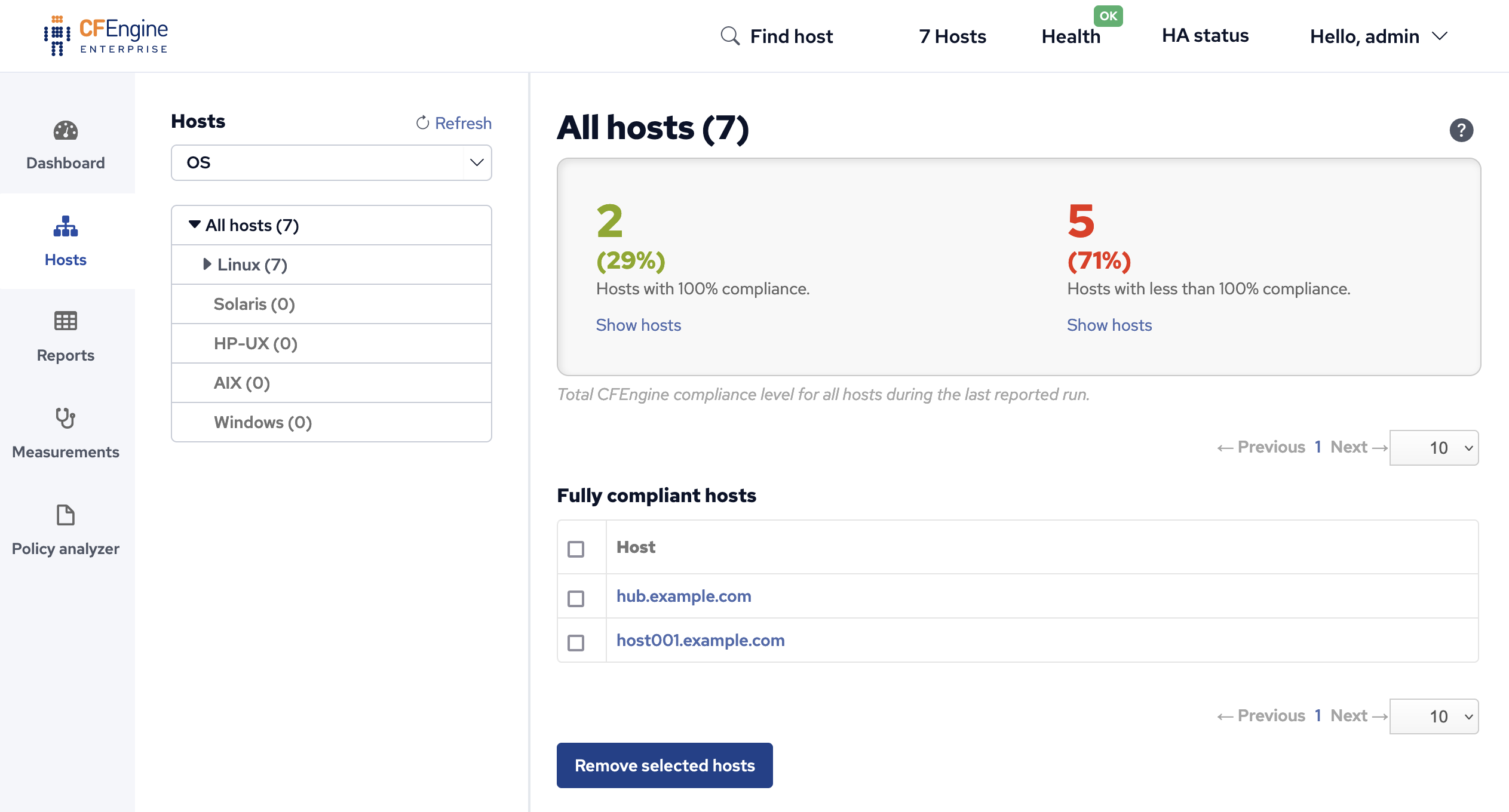
A host tree based on OS (Operating system) is present by default. Host trees map hosts based on reported classes into a hierarchy. Additional host trees can be added based on classes, which could be used to view different perspectives such as geographic location, production tier, business unit, etc. Furthermore, each host tree can be shared based on Mission Portal role.
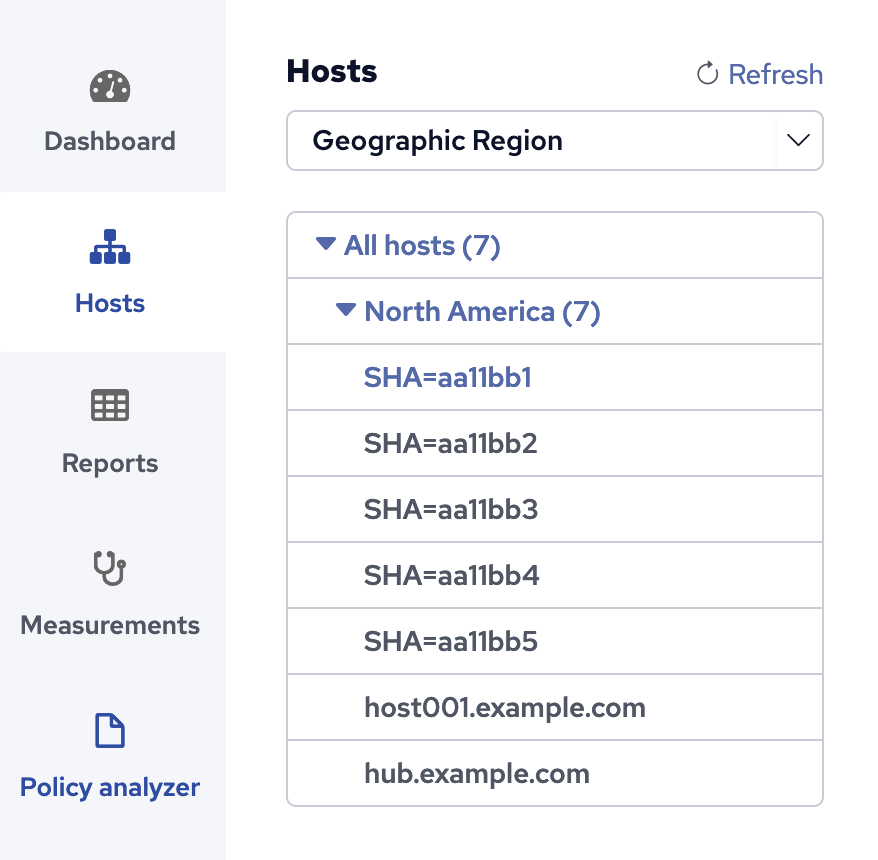
Visiting a leaf node provides a summary of host specific information.
Host info
The host info page provides extensive information for an individual host.
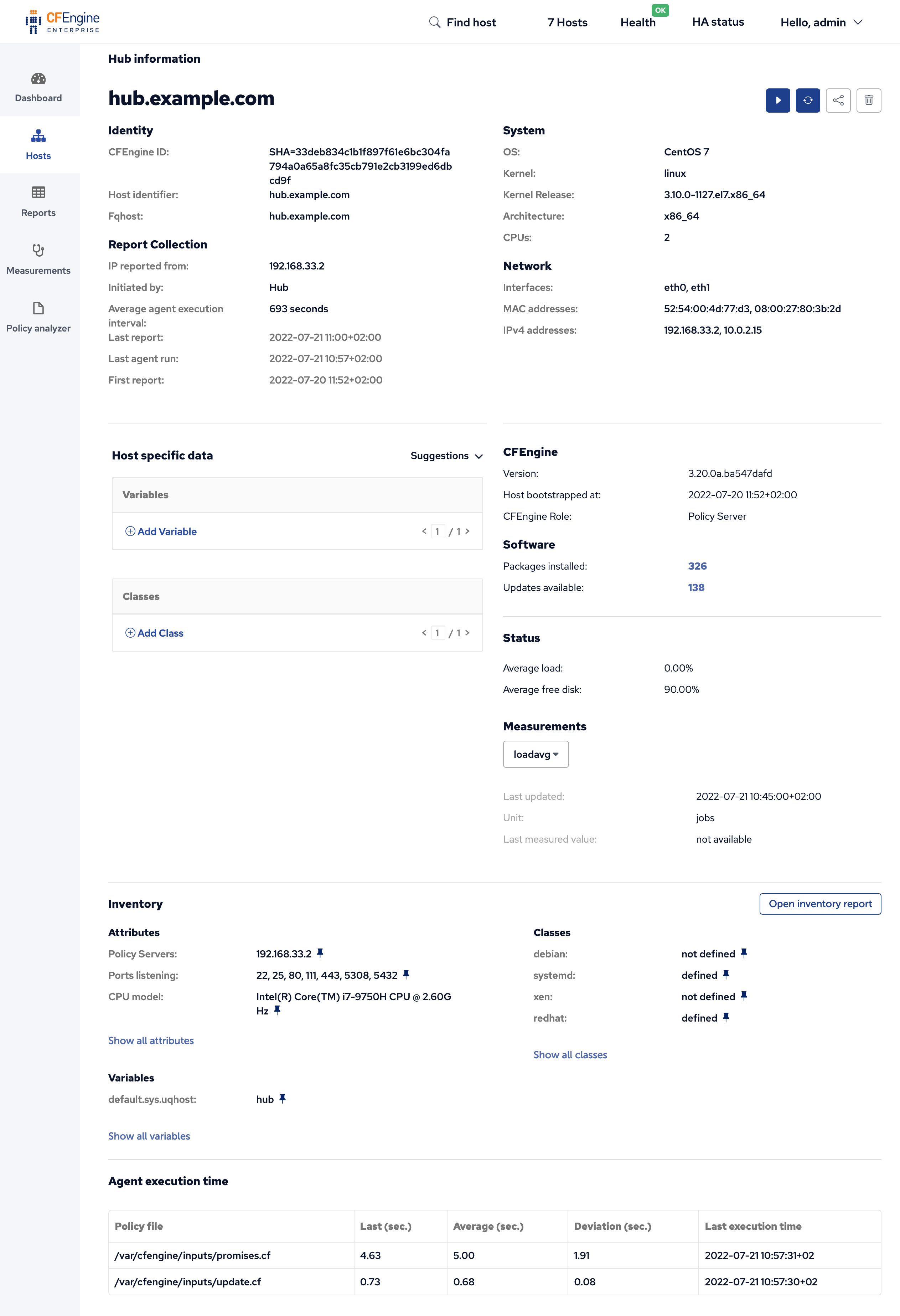
Host actions
Take action on a host.

 :: Request an unscheduled policy run
:: Request an unscheduled policy run :: Request report collection
:: Request report collection :: Get the URL to the specific hosts info page
:: Get the URL to the specific hosts info page :: Delete the host
:: Delete the host
Host specific data
Assign host specific Variables and Classes.
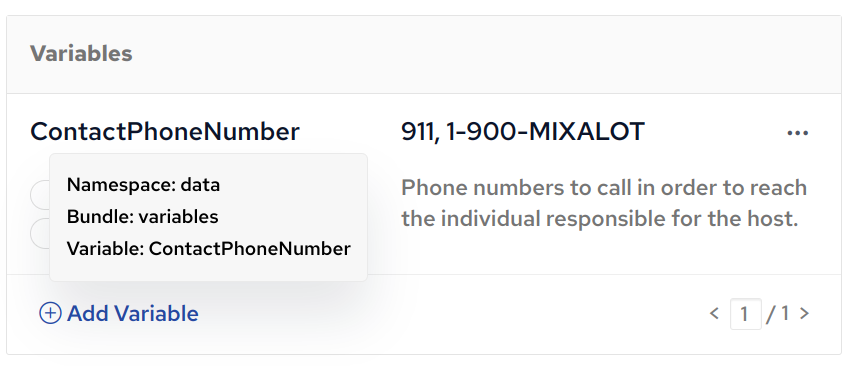
Note: When defined via host specific data, variables default to the variables bundle of the data namespace. Qualify the variable with the desired bundle and namespace to override the default. For example my_bundle.myvariable to define my_bundle.myvariable in the data namespace, or my_namespace:my_bundle.myvariable to define myvariable in the my_bundle bundle of the my_namespace namespace.
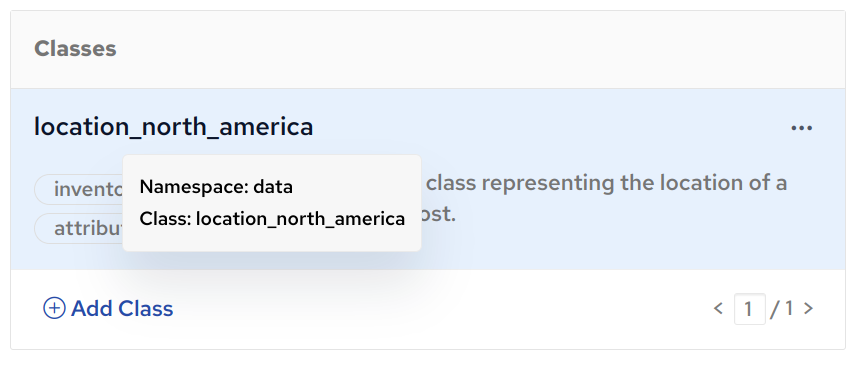
Note: When defined via host specific data classes default to the data namespace. Qualify the class with the desired namespace to override the default. For example default:my_class, or my_namespace:my_class.

 Chat
Chat Ask a question on Github
Ask a question on Github Mailing list
Mailing list